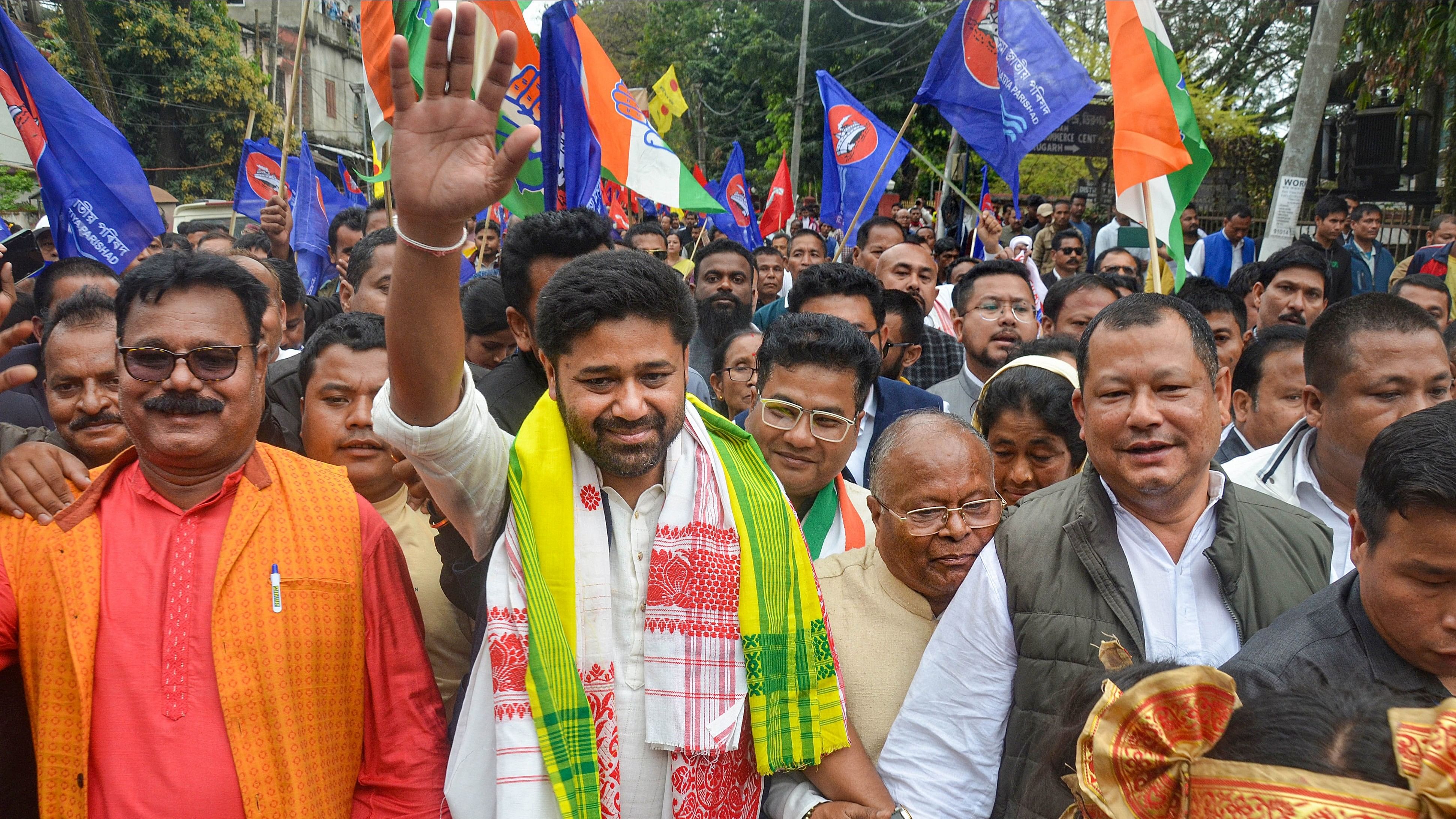
AJP President Lurinjyoti Gogoi
Credit: PTI Photo
Margherita: The indigenous people of Assam can “never accept” the CAA, which will be a critical issue in the 2024 Lok Sabha elections, asserted Dibrugarh parliamentary constituency's opposition candidate Lurinjyoti Gogoi.
The illegal influx of foreigners has been a long-standing cause for concern in Assam, and the BJP has now legalised it with this act, which is unacceptable to the people, Gogoi told PTI in an interview, amid campaigning here.
"Assam has borne the burden of illegal foreigners till 1971, and now, another 43 years till 2014 has been added to it,” he said.
"How can the people accept this? There was a long-drawn agitation in the state against illegal influx and with the CAA, the identity of the Assamese is at stake,” Gogoi claimed.
The United Opposition Forum Assam (UOFA) had announced Gogoi, the Assam Jatiya Parishad (AJP) president, as the candidate for the Dibrugarh Lok Sabha seat, from where Union minister Sarbananda Sonowal is contesting as a BJP nominee.
The Centre had in March implemented the Citizenship (Amendment) Act, 2019, notifying the rules four years after the law was passed by Parliament to fast-track citizenship for undocumented non-Muslim migrants from Pakistan, Bangladesh and Afghanistan who came to India before December 31, 2014.
The CAA is “completely motivated, communal and unconstitutional, and a ploy of the BJP to burden Assam and its resources further,” Gogoi alleged.
"Our constitution has the principle of secularism enshrined in it, but the act is based on religious division,” he claimed.
The opposition parties have been protesting against the CAA, and “this is a very serious and dangerous issue, which will also have an economic, social, cultural and linguistic impact on the people of the state,” the AJP chief said.
The people of Assam are very concerned about it, and that will reflect in the ensuing polls, he said.
Gogoi, as the general secretary of the All Assam Students' Union (AASU), was at the forefront of the anti-CAA agitation in the state when it was enacted in December 2019.
The CAA stir subsequently led to the formation of two political parties in 2020—the AJP, with Gogoi as its president, and the Raijor Dal, led by Akhil Gogoi.
Lurinjyoti Gogoi is locked in a triangular contest in Dibrugarh against BJP's Sonowal and Aam Aadmi Party's Manoj Dhanowar.
On both him and Sonowal having their roots in the AASU, he said, "Yes, we are from the students’ organisation, but Sonowal compromised on its ideology of asserting the rights of the indigenous population".
"I am following AASU's original principles and fighting for the betterment of people by trying to resolve many unresolved issues like the National Register of Citizens (NRC), implementation of the Assam Accord and the state’s linguistic and cultural identity,” he said.
Sonowal has "diverted from this path and compromised with the communal forces for his political benefit", Gogoi alleged.
People will give Sonowal a befitting reply in the elections, he said.
Asked about Dibrugarh once being the hub of insurgency activities, the opposition leader said that without ULFA (Independent) leader Paresh Barua, the recently signed peace accord with the pro-talk faction of the outfit “has no meaning”.
For any peace talks with the United Liberation Front of Assam (ULFA), the presence of Paresh Barua is a must, Gogoi asserted.
Talking about the tea garden workers, which constitute over 30 per cent of Dibrugarh’s electorate, the AJP president said the BJP made many promises to them, but “failed to fulfil those”.
"They have not even paid the promised daily wage of Rs 351 to the workers, and there is a strong resentment among them due to this,” he said.
Tea is a major industry in Assam and "we are committed to resolve the issues of the stakeholders so that the quality, production and the condition of the workers improve”, Gogoi said.
Gogoi had earlier unsuccessfully contested in two constituencies under the Dibrugarh parliamentary seat in the last assembly elections.